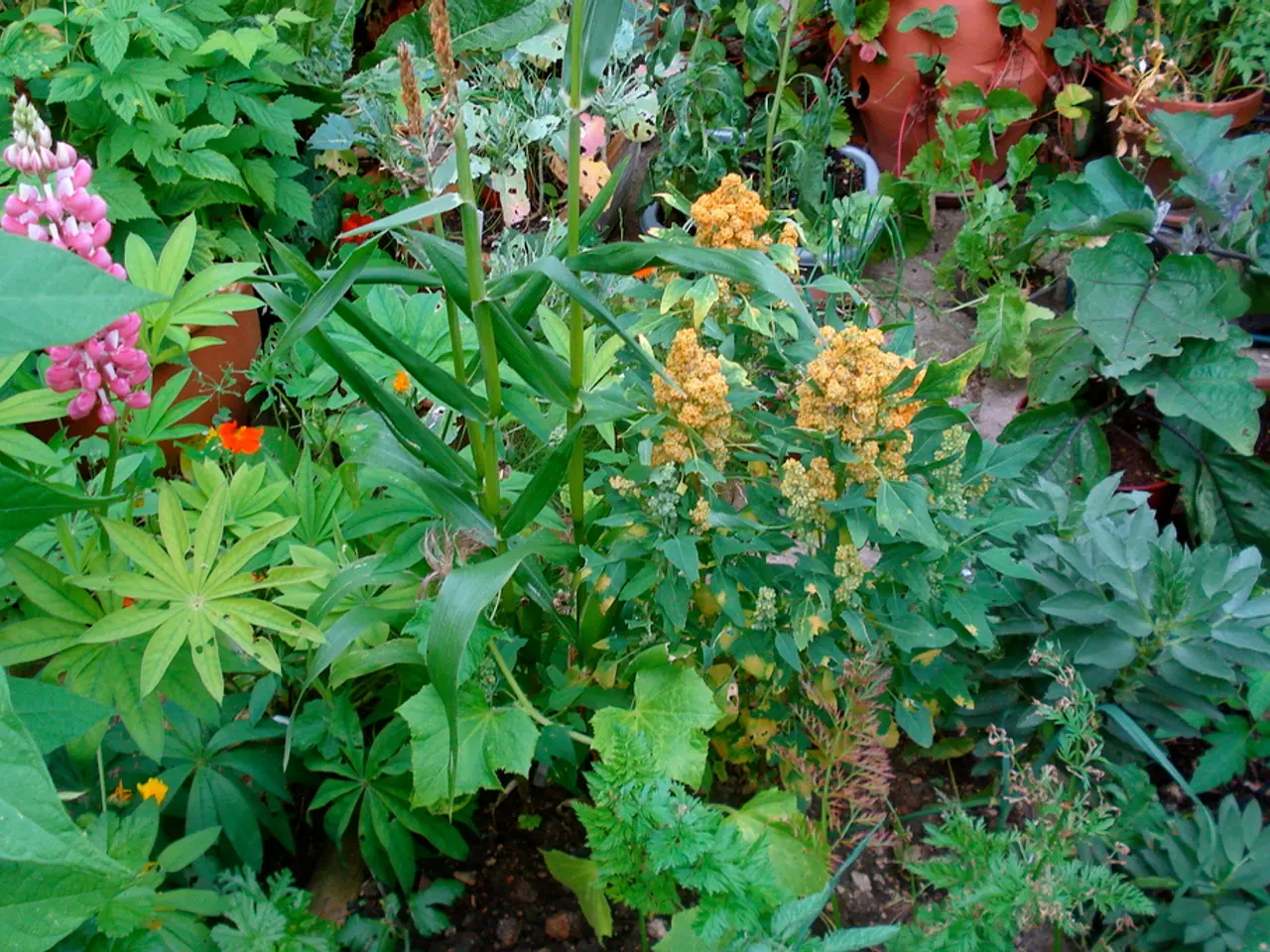Threatened Sanctuaries - Necessity of Planning Defense for Miniature Gardens
The Ruhr region, a bustling metropolitan area in North Rhine-Westphalia, is home to cities like Bochum and Essen, known for their extensive parks, gardens, and green spaces that contribute significantly to urban ecology and recreation. Among these green spaces, allotment gardens hold a special place.
Allotment gardens are small plots cultivated by individuals or communities within urban settings. They offer numerous benefits, such as local food production, community engagement, biodiversity preservation, and microclimate regulation.
In the Ruhr region, allotment gardens play a crucial role in mitigating urban heat island effects by increasing green cover, promoting soil health, and supporting native plant and insect species. They also serve as educational sites, particularly for children, where they can learn about sustainable gardening practices, ecology, and climate change adaptation firsthand, thereby fostering environmental awareness.
However, these valuable green spaces face threats from urbanization and industrial development. The loss of allotment gardens reduces biodiversity corridors and limits opportunities for community-based environmental education. Climate change also brings challenges such as altered rainfall patterns and heat stress, impacting gardening viability.
Sonja Bongers, the Chairwoman of the SPD city council fraction and a member of the North Rhine-Westphalia state parliament, has emphasised the urgent need to develop or update allotment development concepts. She highlights the importance of securing the qualitative and quantitative goals for allotment gardens in land use and green space plans.
Allotment gardens are not just about gardening; they are significant living spaces for residents and important components of the region's culture. In urban areas where alternatives are lacking, they have significant ecological and social importance. Allotment gardeners are increasingly focusing on sustainable and natural garden design to support biodiversity.
Moreover, allotment gardens and school gardens maintained by allotment gardeners in the Ruhr region are important extracurricular learning sites. They provide opportunities for children and young people to observe ecological processes and learn how to grow healthy fruits and vegetables. Allotment associations in the Ruhr region cooperate with schools and kindergartens in their neighbourhoods to further enhance these educational benefits.
As climate change continues to pose challenges, the importance of green spaces like allotment gardens in cities, including Bochum, as climate compensation areas, fresh air corridors, and refuges for flora and fauna, cannot be overstated. They are gaining importance as pivotal components in sustainable urban life.
However, the pressure to convert allotment gardens for profitable use is increasing, especially in city centres, along transport routes, and near commercial and industrial areas. It is essential for urban and environmental policy to provide support to maintain and enhance the role of allotment gardens in sustainable city life.
References: [1] Bochum City Council. (n.d.). Botanical Collection and Environmental Protection. Retrieved from https://www.bochum.de/stadt/umwelt/botanische-sammlung-und-umweltschutz/
[2] Bongers, S. (2022, April 1). The Urgent Need for Allotment Development Concepts in the Ruhr Region. Retrieved from https://www.spd-nrw.de/news/die-notwendigkeit-der-entwicklung-von-allotment-entwicklungs-konzepten-im-ruhrgebiet
- In the Ruhr region, allotment gardens are not merely spaces for gardening, but also significant elements in the local environmental-science and lifestyle, offering educational opportunities about sustainable gardening, ecology, and climate change.
- These allotment gardens within home-and-garden settings contribute significantly to the environmental-science of the region by providing biodiversity preservation, microclimate regulation, and serving as vital habitats for native plant and insect species.
- With the increasing challenges posed by urbanization, industrial development, and climate change, the preservation and enhancement of allotment gardens in cities like Bochum become essential for maintaining a greener lifestyle and promoting sustainable urban life.




